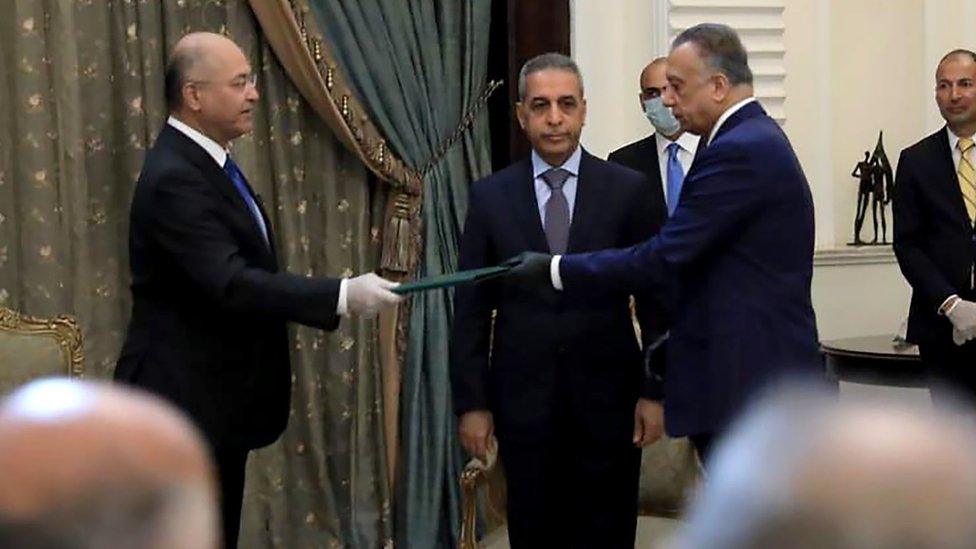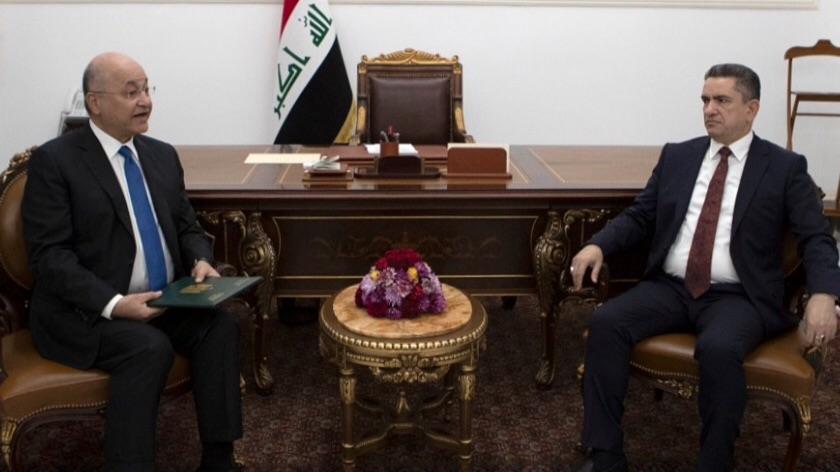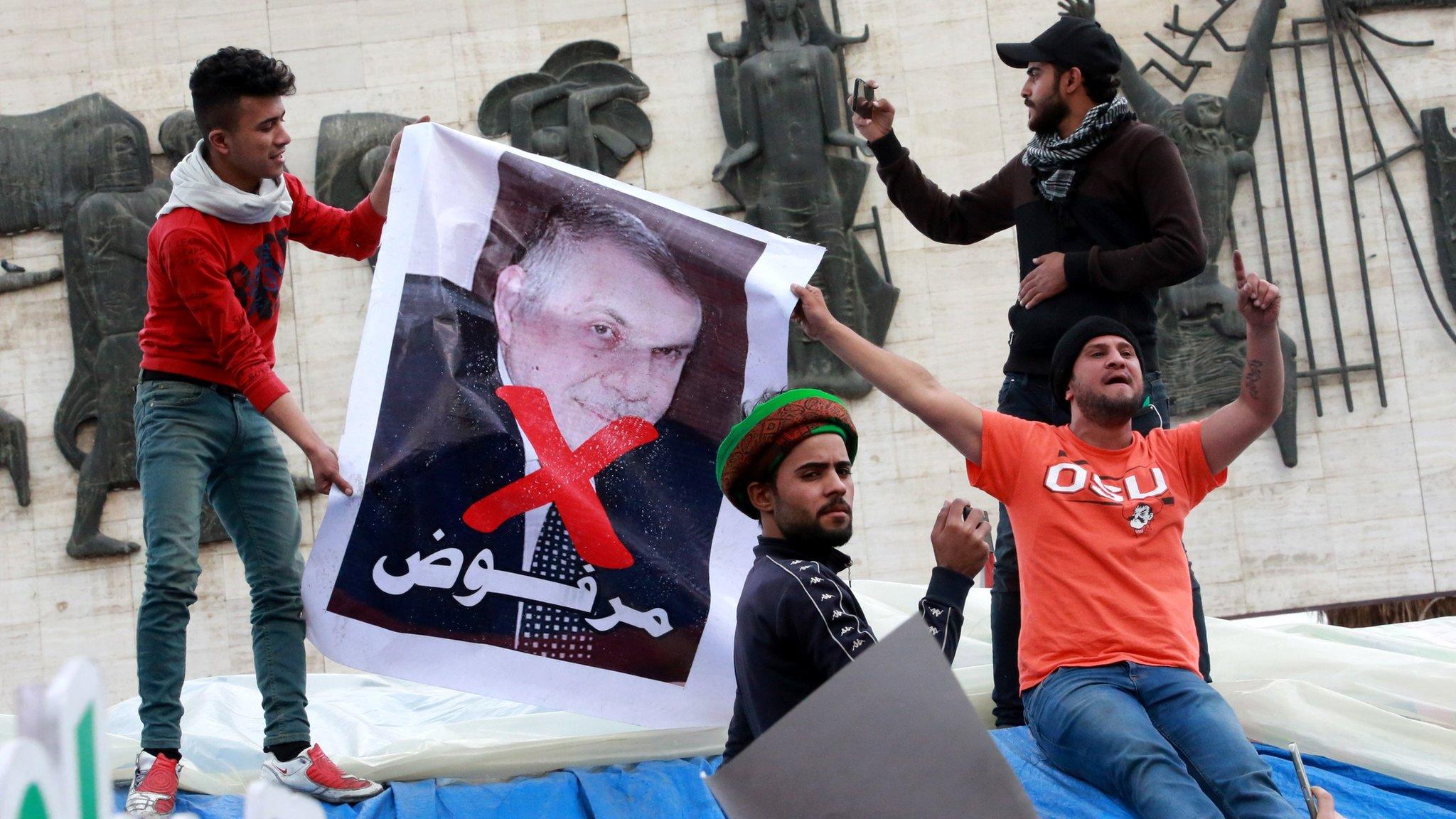Iraq names third PM-designate in 10 weeks as deadlock continues
- Published

President Barham Saleh (L) and Mustafa al-Kadhimi (R) wore gloves at the ceremony
Iraq’s president named intelligence chief Mustafa al-Kadhimi as prime minister-designate - the third person chosen to lead the country in 10 weeks.
Mr Kadhimi vowed to form a government that “puts the aspirations and demands of Iraqis as the top priority”.
He was nominated hours after Adnan al-Zurfi withdrew his candidacy.
Mr Zurfi cited “internal and external reasons” for the move. He reportedly faced opposition from Shia factions with close ties to Iran.
Adel Abdul Mahdi, who resigned in November in response to mass anti-government protests, will continue to govern in a caretaker capacity.
Before the coronavirus outbreak began in Iraq last month, people were taking to the streets of the capital, Baghdad, and many southern cities to express their anger at endemic corruption, high unemployment, dire public services and foreign interference in the oil-rich country.
More than 500 protesters were shot dead by security forces and unidentified gunmen during five months of unrest. Thousands of others were injured.
The protesters’ demands included sweeping away Iraq’s political system, which allocates positions to political parties based on ethnic and sectarian identity, encouraging patronage and corruption.
In his nominating speech on Thursday, President Barham Saleh described Mr Kadhimi as a “fighter and intellectual who is well known for his integrity, moderation and keenness [to honour] the rights of the Iraqi people”.
But Mr Saleh warned that the 53-year-old National Intelligence Service chief had a "huge responsibility, and a difficult task”, including organising fair and transparent parliamentary elections.
“I pledge to my honourable people to work to form a cabinet that puts the aspirations and demands of the Iraqi people at the top of its priorities, safeguards the country's sovereignty, preserves rights, works to resolve crises and pushes the economy forward," Mr Kadhimi tweeted.
He must now submit a cabinet to parliament for approval by 9 May - something neither Mr Zurfi or the first nominee, Mohammed Allawi, were able to do.
If successful, he will have to deal with an outbreak of Covid-19 that has killed infected more than 1,200 people in Iraq and claimed 69 lives.
- Published17 March 2020

- Published2 March 2020
